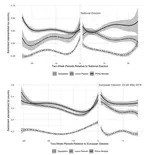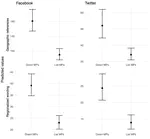Political Representation and Protest Politics in European Democracies (PhD Thesis)
 Source: unsplash.com
Source: unsplash.com
Looking at the newspapers in recent years, one topic seemed to be omnipresent - political protest. Street mobilization constitutes an integral part of political participation in representative democracies nowadays. Yet, to what extent can protests influence politics in representative democracies? And which political actors represent the interests of these protests?
My dissertation explores these questions by examining protests and their representation in European democracies in an empirical-analytical way. My dissertation topic is thus situated at the intersection of social movement and representative democracy literature. It consists of four interrelated individual projects that make theoretical contributions and methodological innovations in the research area of the political representation of protest.
The main focus of my dissertation lies in the interaction between civil society actors (with a particular focus on protest movements) and political actors of the representative-electoral systems (with a specific emphasis on parties and MPs). Historically, political representation is geographically bound as representatives are elected in territorial districts with the right to vote defined by geographical borders. In European democracies, this centuries ago established system is still in place nowadays, albeit in certain varieties with several adjustments. Even in more flexible electoral systems, the geographic borders of the districts define who can vote and who is excluded from voting rights. Political representation is therefore per definition restricted to territorial communities and thus defined by borders. However, civil society increasingly organizes transnationally in the European context, thus transcending national and administrative borders.
To answer the research questions of my dissertation project, I use a mixed-method approach combining well-established techniques such as regression analyses and semi-structured interviews with cutting-edge machine-learning methods such as synthetic controls and topic modeling to process big data. A particular focus of my dissertation lies in the analysis of political texts. One data source I use is online political communication on social media, offering the opportunity to access politicians’ political communication at the individual level in an unmediated channel. Arguably, MPs’ most relevant public communicative action occurs in parliamentary debates, which is why I also analyze political communication in parliaments. The methodological triangulation in my mixed-method approach allows me to take advantage of the benefits of processing large amounts of data while still obtaining theoretically-driven valid results.
My results indicate that individual politicians and political parties are more responsive to protest events within the borders of their electoral districts. Comparing different levels of the European multilevel system, I can show that the protest location is most influential for legislators on subnational levels. Beyond that, my findings underline the importance of politicians’ biographies, which are, besides party ideological and strategic consideration, crucial to explain their responsiveness to political protests.


